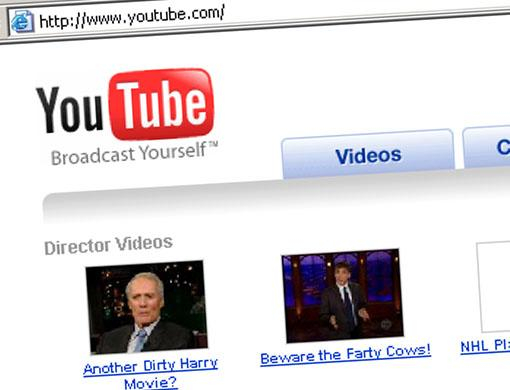
Islamabad: Pakistan has blocked the popular video sharing website YouTube in a bid to contain "blasphemous" material, officials said on Thursday.
The blockade came hours after the Pakistan Telecommunication Authority (PTA) directed Internet service providers to stop access to social network Facebook indefinitely on Wednesday because of an online competition to draw the Prophet Mohammad (PBUH)
Wahaj-us-Siraj, the CEO of Nayatel, an Internet service provider, said PTA issued an order late on Wednesday seeking an "immediate" blockade of YouTube.
"It was a serious instruction as they wanted us to do it quickly and let them know after that," he told Reuters.
YouTube was also blocked in the Muslim country in 2007 for about a year for what it called un-Islamic videos.
A PTA official, who declined to be identified, said the action was taken after the authority determined that some caricatures of the Prophet Mohammad (PBUH) were transferred from Facebook to YouTube.
Any representation of the Prophet Mohammad (PBUH) is deemed un-Islamic and blasphemous by Muslims.
Siraj said the blocking of the two websites would cut up to 25 percent of total Internet traffic in Pakistan.
"It'll have an impact on the overall Internet traffic as they eat up 20 to 25 percent of the country's total 65 giga-bytes traffic," he said.
Publications of similar cartoons in Danish newspapers in 2005 sparked deadly protests in Muslim countries. Around 50 people were killed during violent protests in Muslim countries in 2006 over the cartoons, five of them in Pakistan.
Al Qaida claimed responsibility for a suicide attack on Denmark's embassy in Islamabad in 2008, killing six people, saying it was in revenge for publication of the caricatures.
Timeline: Countries crack down on social media sites
Pakistan:
May 2010: Pakistan blocks access to Facebook and YouTube over their “growing sacrilegious content”. Some pages from Wikipedia are also blocked for similar reasons. A spokesperson of the country’s Internet Service Providers Association says the ban would see a major drop in internet use as “these two sites take 20 to 25 per cent of the country's total Internet traffic.”
February 2008: Pakistan blocks YouTube website for a couple of days for hosting un-Islamic content.
China: Permanently bans Facebook and YouTube, though citizens often have little trouble working their way around the ban using proxy servers and other means. Twitter has also been banned in the past.
Iran:Has intermittently blocked access to Facebook, specially during presidential elections in the past. Twitter has a mass user base in Iran.
Turkey, Indonesia, Morocco and Thailand have all blocked Facebook in the past











